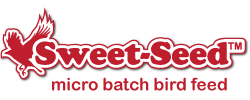Money-Saving Tips for Feeding Hummingbirds

Hummingbirds may be tiny, but feeding them can quickly add up to big bucks as you attract a larger and more energetic flock. By practicing some easy money-saving tips, you can keep your hummingbird feeding budget on track without any birds missing a meal.
The Costs of Feeding Hummingbirds
Whether you use ready-to-pour nectar, nectar concentrate, or even make your own nectar at home, there is far more to the cost of feeding hummingbirds than just the food alone. As more hummingbirds discover your feeders, they can become territorial and a good solution is to add another feeder ($). Hooks or poles will also be necessary to hang more feeders ($), and all feeders must be kept clean, which means cleaning brushes for the nooks and crannies as well as appropriate soap or vinegar to sterilize the feeders ($). To keep the birds comfortable and revisiting your yard, you may even want to invest in perches ($) or hummingbird-friendly flowers ($).
When you may be on a tight budget, all these expenses ($$$$$) can add up and it may be challenging to feed hummingbirds as much as you would like.
8 Ways to Save Money Feeding Hummingbirds
There are several easy options to cut the costs of feeding hummingbirds without cutting the actual feeding. The more tips you follow, the more you will save and the more hummingbirds you will ultimately be able to feed.
- Bring Hummingbird Feeders in at Night
Hummingbirds are diurnal, which means they are only active during daylight hours. While they may still feed in the twilight of early morning or late evening, no hummingbird will visit even the most tempting feeder in the dark of night. Bats, moths, raccoons, and even bears do feed at night, however, and can easily drain or damage a feeder. Taking feeders down and putting them in a garage or shed at night will protect them and minimize feeding costs. - Reduce Daily Nectar
It may seem that filling a feeder to the brim is easiest because it won’t need refilling as frequently, but this can be a costly waste if nectar spoils and must be discarded before hummingbirds can drink it all. Instead, fill feeders with just enough nectar that the birds will be able to consume in a day or two, and less will be wasted to spoilage. - Keep Feeders Well-Maintained
A feeder that clogs easily will cause nectar to spoil more quickly, as the nectar cannot be released to hungry hummers. Furthermore, a dirty feeder will also contaminate fresh nectar more quickly. By cleaning feeders regularly – ideally with every refill – and ensuring all the ports are free-flowing, nectar will remain fresh longer and less nectar – and money – will be wasted. - Opt for Dish-Style Feeders
Hummingbird feeders with upside-down reservoirs may be popular, but they can also leak very easily, causing spillage. In addition to wasted nectar, this can also stain sidewalks, patios, or decks, requiring cleaning or refinishing that could be quite expensive. Instead, choose dish-style feeders that will leak much less for better savings. - Hang Feeders Level and Out of Windy Areas
Any feeder, even dish designs, will leak if it is tipped at a steep enough angle. To prevent this, take care to hang hummingbird feeders level and out of breezy areas. Similarly, avoid hanging feeders near busy walkways or steps where they might be accidentally bumped – a nectar spill onto clothing could lead to an expensive cleaning bill! - Position Feeders in the Shade
When you’re trying to save money feeding hummingbirds, every little bit can help for feeding these little birds. Hang feeders in shady spots so the nectar will not heat up and spoil as quickly, and you will not waste as much on fresh nectar. Similarly, cooler feeders are less likely to become warped and develop leaks or damage. - Use Ant Moats and Bee Guards
Just like nighttime visitors can quickly drain a feeder, even tiny guests – bees, ants, and wasps – will take sips and contaminate nectar so it spoils more quickly. Adding an ant moat and bee guards will keep pests off the feeder and preserve savings. Many feeder designs come with these features built in, so choose feeders wisely for an even better bargain. - Skip Outdoor Pesticides
While it may seem natural to use pesticides to keep insects from contaminating nectar, hummingbirds actually eat many small gnats and similar insects – they’re a vital source of protein. Furthermore, spider silk is critical for hummingbird nests. Skip pricey pesticides and let hummingbirds do the work for free instead!
How much money can you save while still feeding a flock of hummingbirds? You might be surprised, and soon you’ll save enough for more feeders, more nectar, and even more hummers to enjoy!
